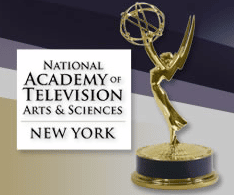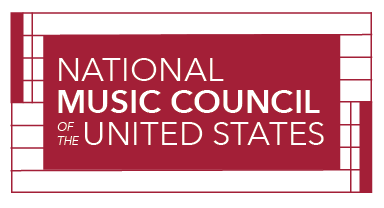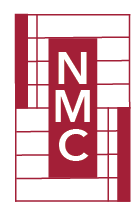NMC “Copy Kid” PSA Wins Best Community/Public Service Award at New York Emmy Awards

The National Music Council/ Music Publishers’ Association “Copy Kid” animated PSA that encourages young people to respect the rights of creators won best Community/Public Service Award at the 57th Annual New York Emmy® Awards. The animation, created by Bevin Carnes is part of a new, innovative education tool for primary school students designed to teach respect and admiration for creators, inventors and their works.
Developed by NMC Executive Director and Montclair State University Professor, Dr. David Sanders, entertainment attorney and Songwriters Guild of America counsel Charles J. Sanders, and award winning animation creators Bevin Carnes, the lesson plan and educational extension activities will be available to educators via a free website, http://www.IMadeIt.org. The program was created to teach young students the consequences of disrespecting the rights of creators, and how activity such as appropriating the work of others without permission negatively impacts upon creators and stifles creativity in general.
“This project is part of a world-wide effort by creators to foster an understanding that the online protection of creative work enhances freedom of speech and the marketplace of ideas, rather than encroaching on them.” said Dr. David Sanders in announcing the curriculum.” The rampant disrespect for the creative and property rights of not just music creators, but creators of in all types of media, has resulted in incalculable harm over the past decade not only to the individual creators, but also to American culture as a whole. It is impossible to determine exactly how many composers and songwriters have stopped creating because they can no longer afford to do so, but suffice it to say that the problem of Internet piracy which has resulted in the diminution of music community income by well over fifty percent since 1999 has been personally devastating to most. One of the best long term ways to address and eventually reverse this trend is through education, starting in the youngest grade levels, by teaching respect for creators and their rights.”
According to Bevin Carnes and Charles Sanders, however, the approach has to be a gentle one. “You can’t hit kids over the head with morality plays,” stated Carnes. “You just show them through a medium they understand and love, animation, that actions have consequences, and ask them to draw their own conclusions.” According to Charles Sanders, inspiration for the more subtle approach was drawn from the famous anti-litter campaign of the 1970’s, in which the tear on the cheek of a Native American over the mindless disrespect of litterers for natural beauty spoke volumes. “That silent, iconic image has stayed with an entire generation of Americans, who were convinced as youngsters that though it might be easier to throw trash out of a car window, it just isn’t right, and it has consequences for all of us. That’s the approach we’ve tried to take regarding the consequences of disrespecting creators.”
Sanders added that the curriculum also instructs educators on the finer points of teaching concepts such as copyright and free expression to older students who may view the two as antithetical to one another. “James Madison and the other Founders knew it in the 18th century, just as the U.S. Supreme Court has repeatedly stated it in the 20th and 21st centuries,” he said. “Far from being in conflict with one another, copyright protection is the very ‘engine of free expression,’ and promotes the advancement of culture.” Added David Sanders, “Again, though, students are asked to reason through to their own conclusions, and perhaps adjust their own behavior accordingly.”
The project was underwritten by the Music Publishers Association of the United States. Founded in 1895, the Music Publishers Association is the oldest music trade organization in the United States, fostering communication among publishers, dealers, music educators, and all ultimate users of music.
The National Music Council is celebrating its 72nd anniversary as a forum for the free discussion of America’s national music affairs and challenges. Founded in 1940 to amplify the positions of its music community members on issues concerning the importance of music in American life and culture, the Council’s initial membership of 13 has grown to almost 50 national music organizations, encompassing every important form of professional musical activity.

